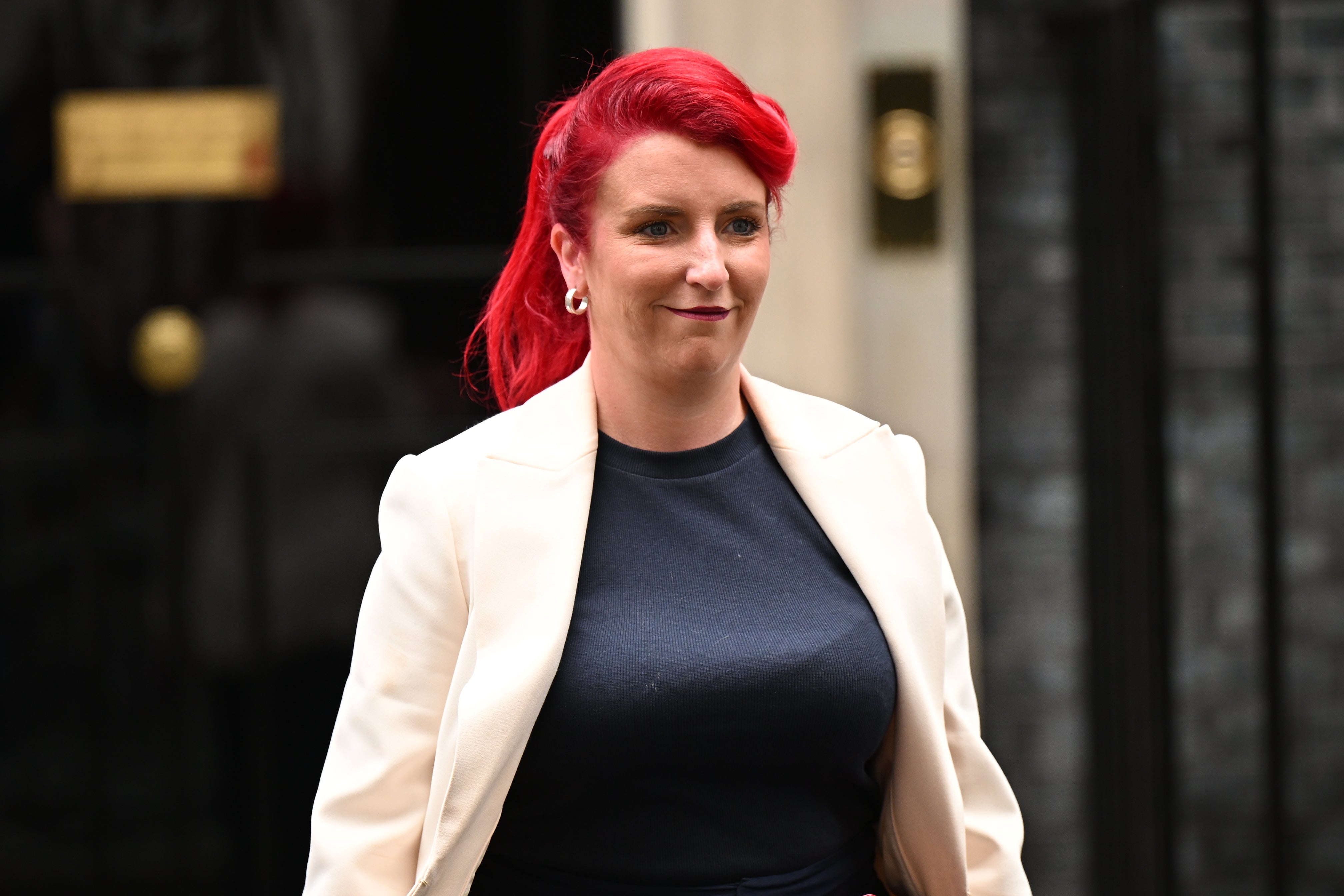Louise Haigh puts Labour’s socialist agenda on the ‘fast track’ with accelerated bus public ownership plan
Exclusive: Transport secretary Louise Haigh is set to accelerate her bid to undo Margaret Thatcher’s legacy on public transport

Your support helps us to tell the story
From reproductive rights to climate change to Big Tech, The Independent is on the ground when the story is developing. Whether it's investigating the financials of Elon Musk's pro-Trump PAC or producing our latest documentary, 'The A Word', which shines a light on the American women fighting for reproductive rights, we know how important it is to parse out the facts from the messaging.
At such a critical moment in US history, we need reporters on the ground. Your donation allows us to keep sending journalists to speak to both sides of the story.
The Independent is trusted by Americans across the entire political spectrum. And unlike many other quality news outlets, we choose not to lock Americans out of our reporting and analysis with paywalls. We believe quality journalism should be available to everyone, paid for by those who can afford it.
Your support makes all the difference.Louise Haigh, the transport secretary, is set to double down on her efforts to renationalise Britain’s transport sector by bringing forward a bill to take bus services back into public ownership.
While some have criticised the Keir Starmer government of being too centrist, Ms Haigh has become the flag bearer for the new government’s socialist agenda in undoing Tory reforms of the 1980s and 1990s.
Hot from winning a vote last night to allow for councils to start to run bus services, sources close to the 37-year-old transport secretary have made it clear she will introduce the Better Buses Bill to reverse Margaret Thatcher’s deregulation before the end of this year.
The demolition of Thatcher’s legacy comes just weeks after it emerged the prime minister had taken her portrait down in Downing Street.

The move on buses follows Ms Haigh getting the first bill of the Labour government through the Commons last week paving the way for the renationalisation of railways in the UK.
A Labour source close to Ms Haigh said: “The Transport Secretary promised to move fast and fix things, and that’s exactly what she’s doing by putting bus reform in the fast lane.
“Today is a landmark day. We’re giving every community the power to take back control of their bus services. This will save and create vital routes up and down the country.
“We won’t stand by and watch while timetables are hollowed out, routes are slashed and passenger numbers plummet.
“Change starts here. After 40 years of failed deregulation, this Labour government is delivering on our promise to put passengers first.”
The move comes despite Tory claims that taking bus services into public ownership will cost the government billions it does not have to spend at a time when chancellor Rachel Reeves has complained she has to make cuts because of a £22 billion black hole in the nation’s finances.
Shadow transport minister Kieran Mullan said: "We know there are a number of local authorities facing financial and organisational challenges, and whilst I don't doubt there will be enthusiasm to make use of these new powers, running any form of public transport brings with it real challenges."
He added: "Depending on the number of local authorities that chose to take up franchising, that could mean significant central Government resources are required.
"Unless I've missed it, today's announcement looks to include absolutely no funding to pay for increased capacity at the department."
The government has also launched a consultation on new, simplified guidance speeding up processes and reducing costs for local leaders looking to bring services into public control.
Transport minister Simon Lightwood told MPs: "(It will) deliver further measures on issues such as funding, despite the challenging financial circumstances we find ourselves in, inherited from the previous government."
There are concerns that rural bus services, which are sometimes run at a loss and require funding from local councils to get private operators to run them, could make running routes more costlier than thought for some authorities. Without funding, some are cut.
MPs were told by Mr Lightwood there are now 300 million fewer miles of bus journeys driven a year since 2010. Overall 1.5 billion fewer journeys took place in 2019 compared to 1985, the final year before deregulation ended.
Join our commenting forum
Join thought-provoking conversations, follow other Independent readers and see their replies
Comments